Carl Trimbach
Learning Finite Linear Temporal Logic Specifications with a Specialized Neural Operator
Nov 21, 2021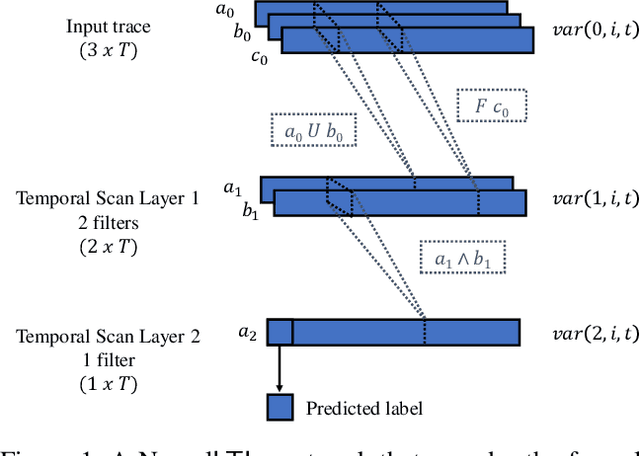

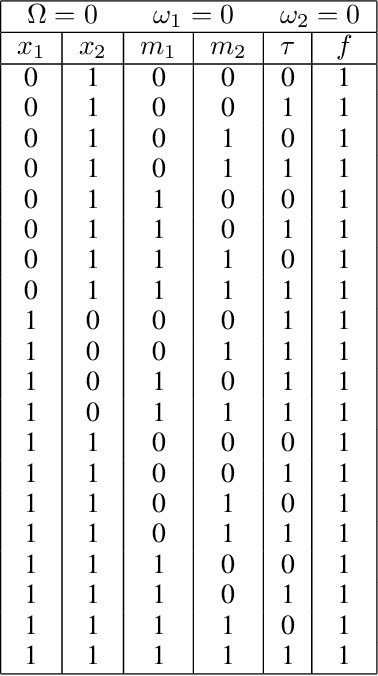
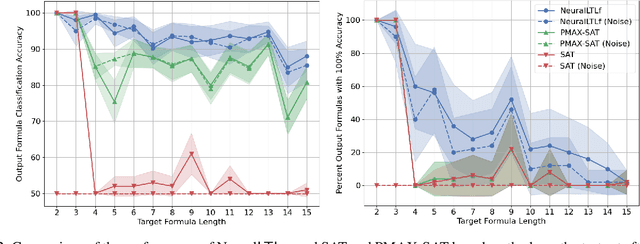
Abstract:Finite linear temporal logic ($\mathsf{LTL}_f$) is a powerful formal representation for modeling temporal sequences. We address the problem of learning a compact $\mathsf{LTL}_f$ formula from labeled traces of system behavior. We propose a novel neural network operator and evaluate the resulting architecture, Neural$\mathsf{LTL}_f$. Our approach includes a specialized recurrent filter, designed to subsume $\mathsf{LTL}_f$ temporal operators, to learn a highly accurate classifier for traces. Then, it discretizes the activations and extracts the truth table represented by the learned weights. This truth table is converted to symbolic form and returned as the learned formula. Experiments on randomly generated $\mathsf{LTL}_f$ formulas show Neural$\mathsf{LTL}_f$ scales to larger formula sizes than existing approaches and maintains high accuracy even in the presence of noise.
Teaching with IMPACT
Mar 14, 2019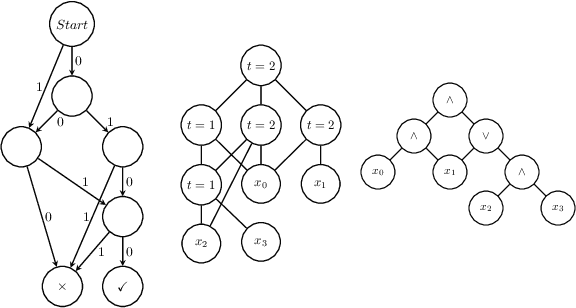

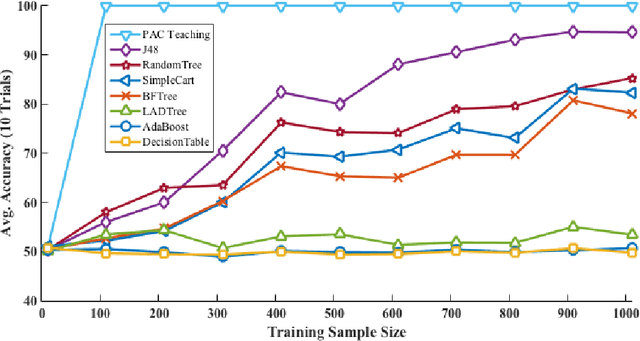
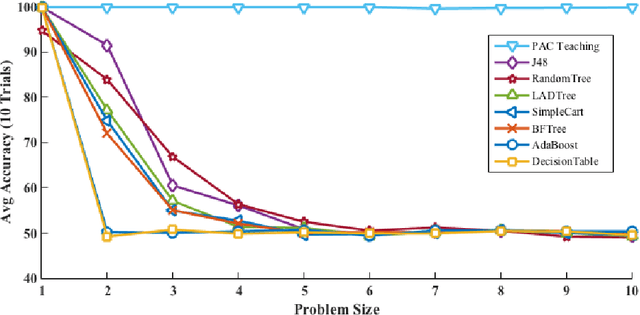
Abstract:Like many problems in AI in their general form, supervised learning is computationally intractable. We hypothesize that an important reason humans can learn highly complex and varied concepts, in spite of the computational difficulty, is that they benefit tremendously from experienced and insightful teachers. This paper proposes a new learning framework that provides a role for a knowledgeable, benevolent teacher to guide the process of learning a target concept in a series of "curricular" phases or rounds. In each round, the teacher's role is to act as a moderator, exposing the learner to a subset of the available training data to move it closer to mastering the target concept. Via both theoretical and empirical evidence, we argue that this framework enables simple, efficient learners to acquire very complex concepts from examples. In particular, we provide multiple examples of concept classes that are known to be unlearnable in the standard PAC setting along with provably efficient algorithms for learning them in our extended setting. A key focus of our work is the ability to learn complex concepts on top of simpler, previously learned, concepts---a direction with the potential of creating more competent artificial agents.
 Add to Chrome
Add to Chrome Add to Firefox
Add to Firefox Add to Edge
Add to Edge